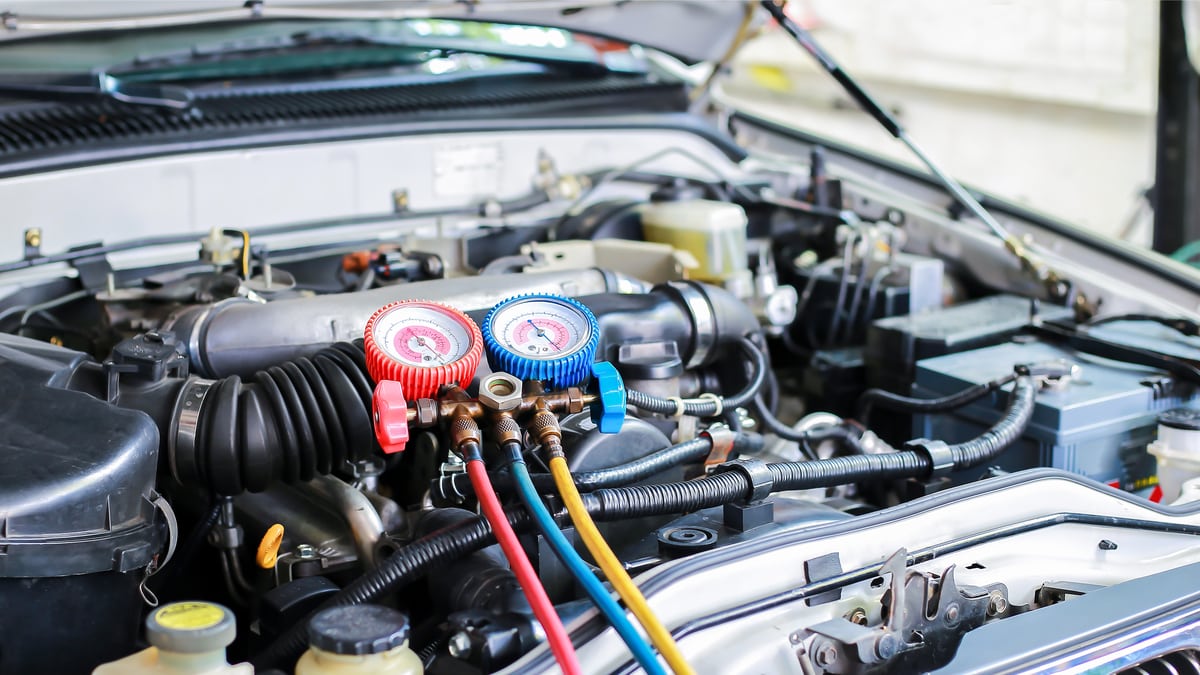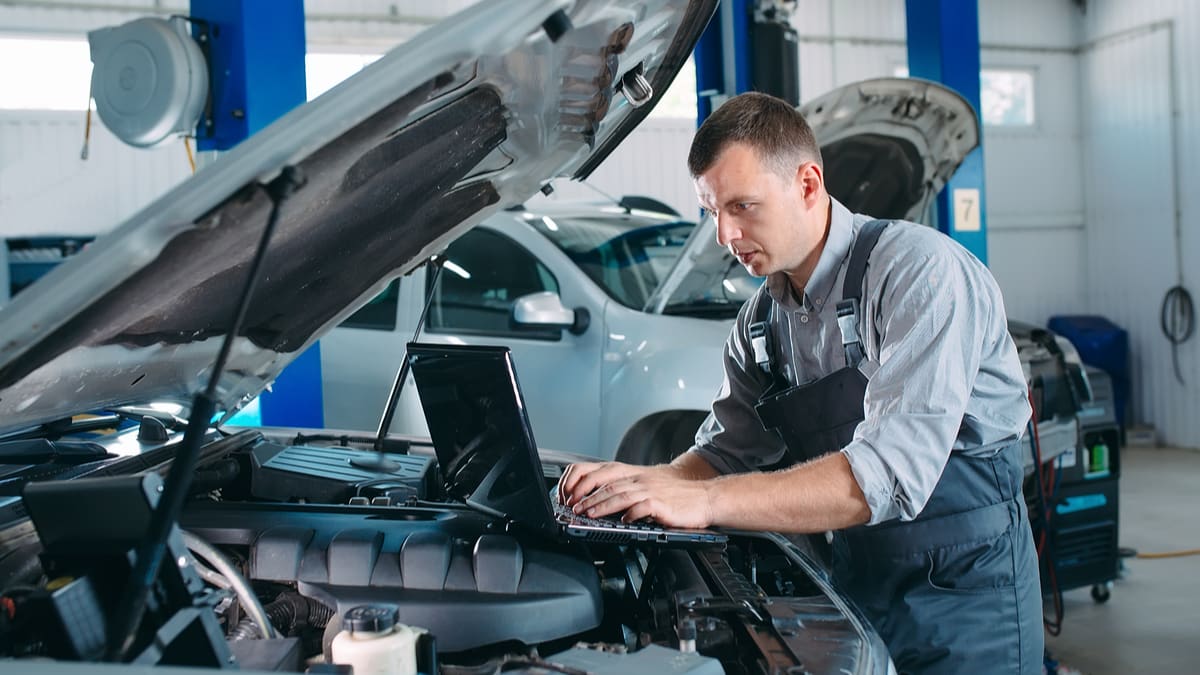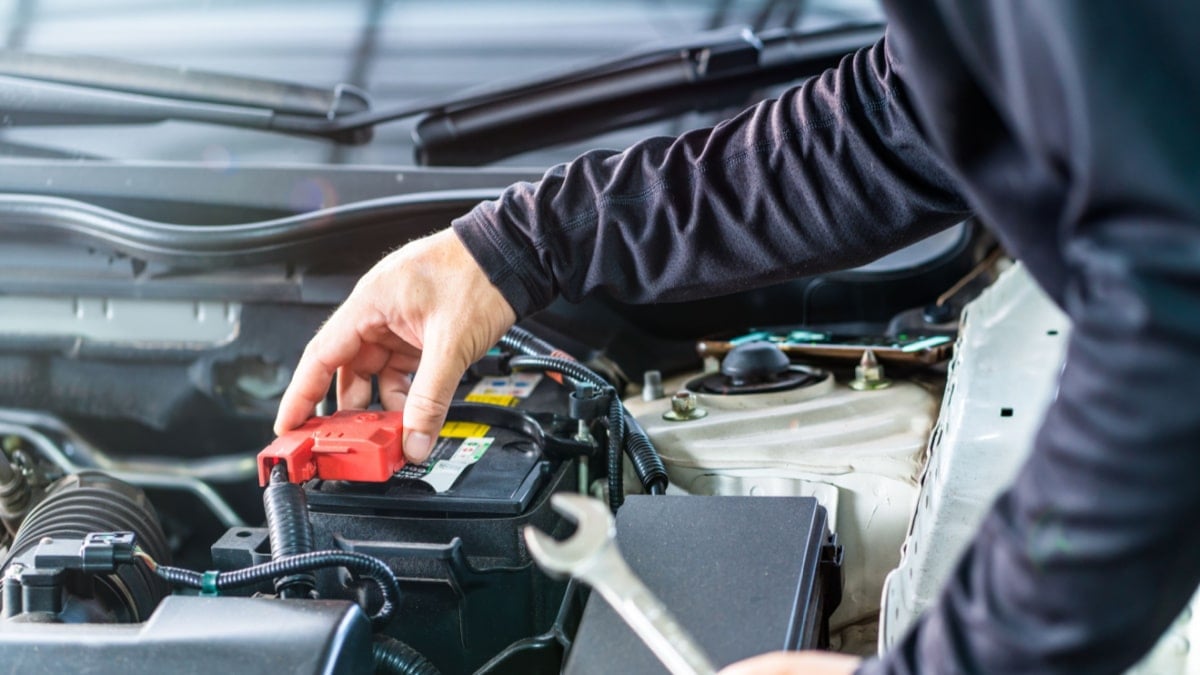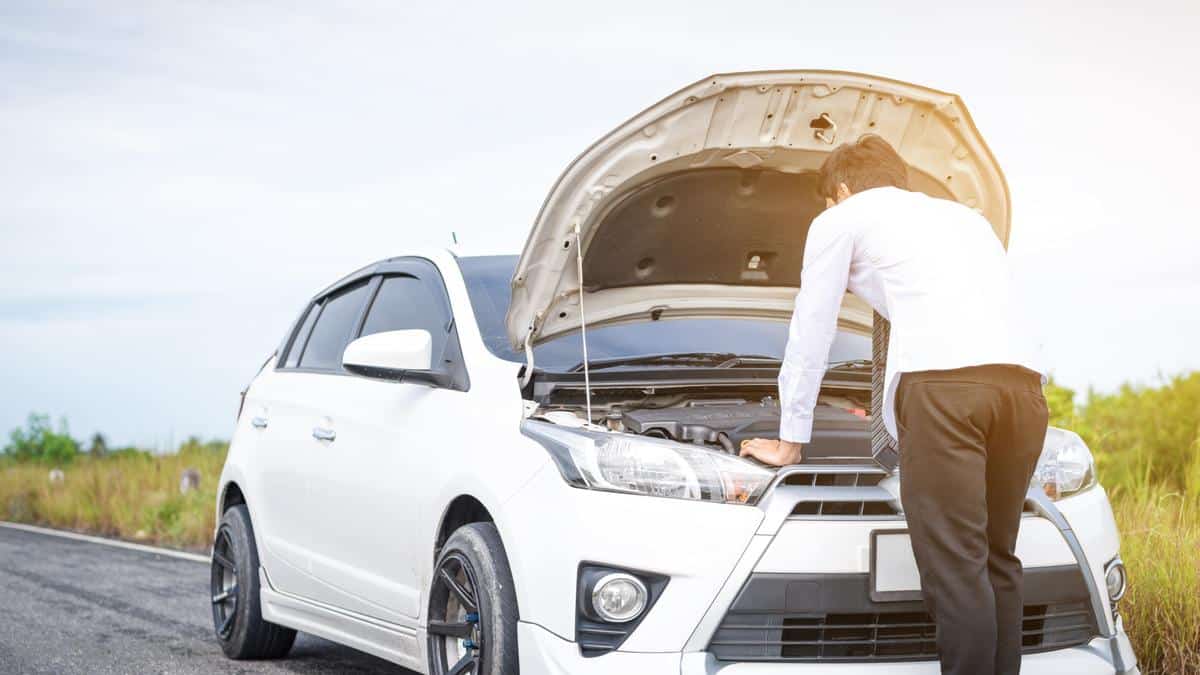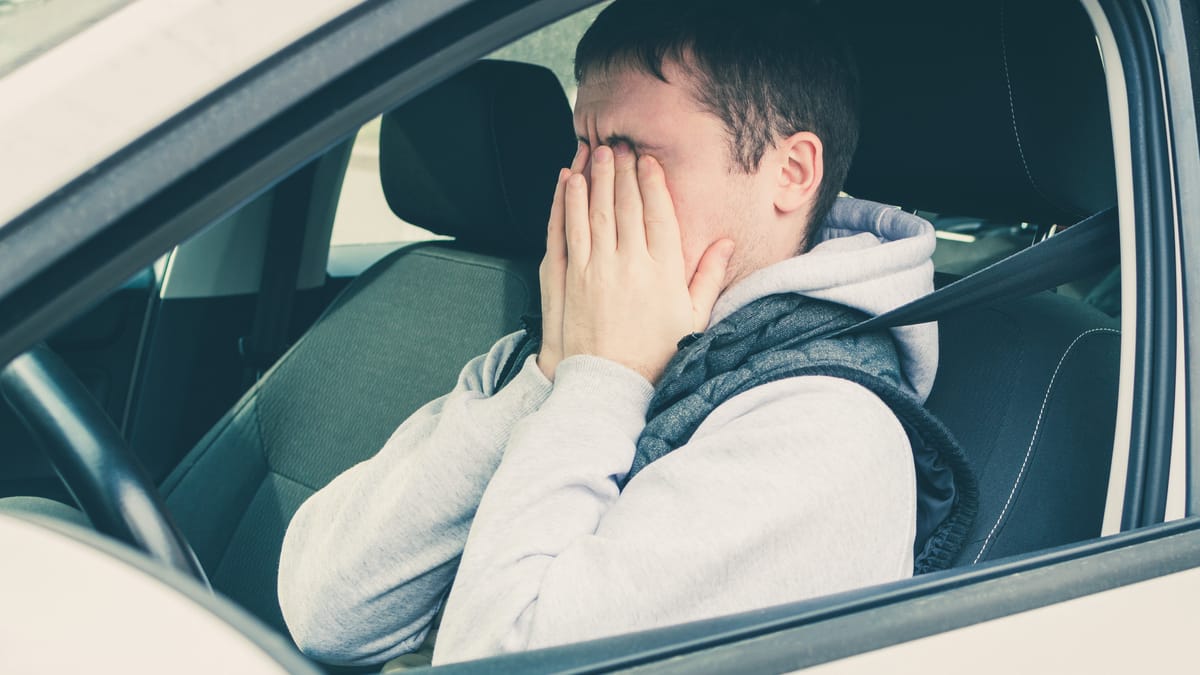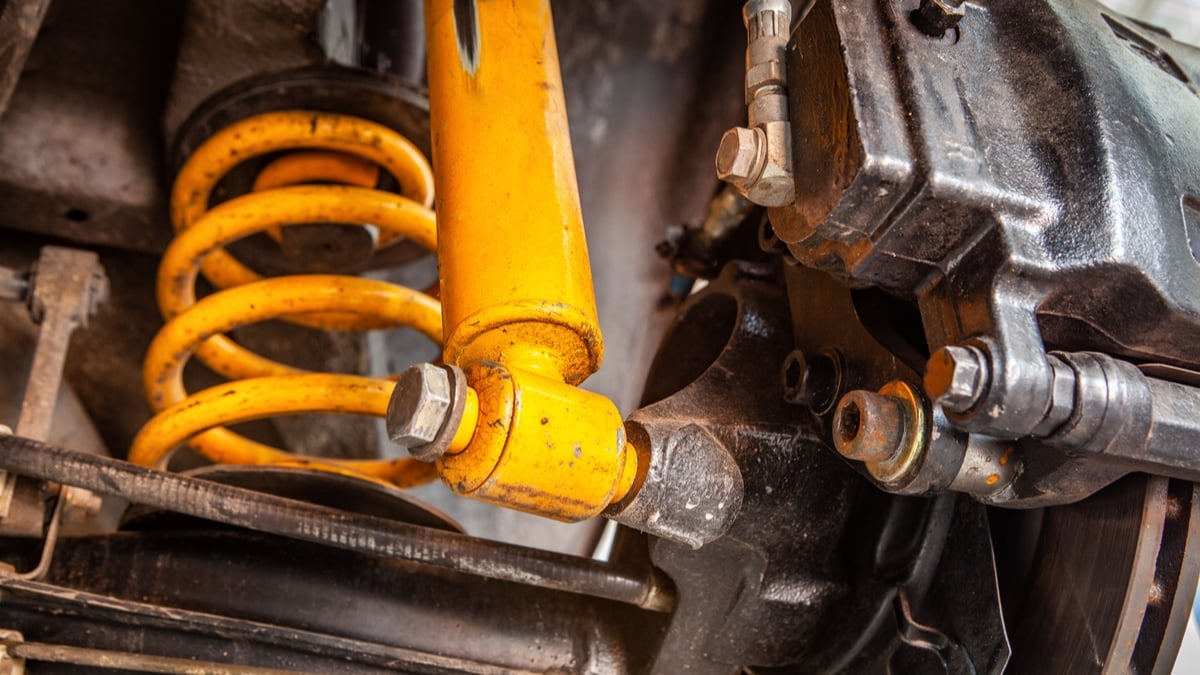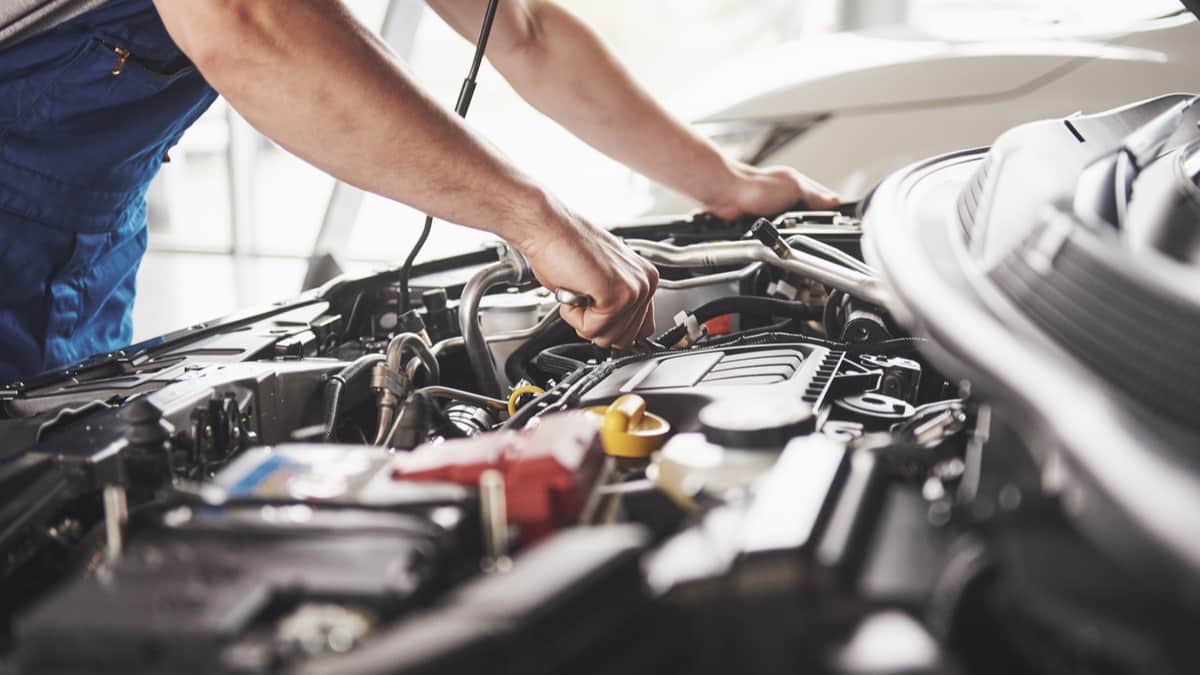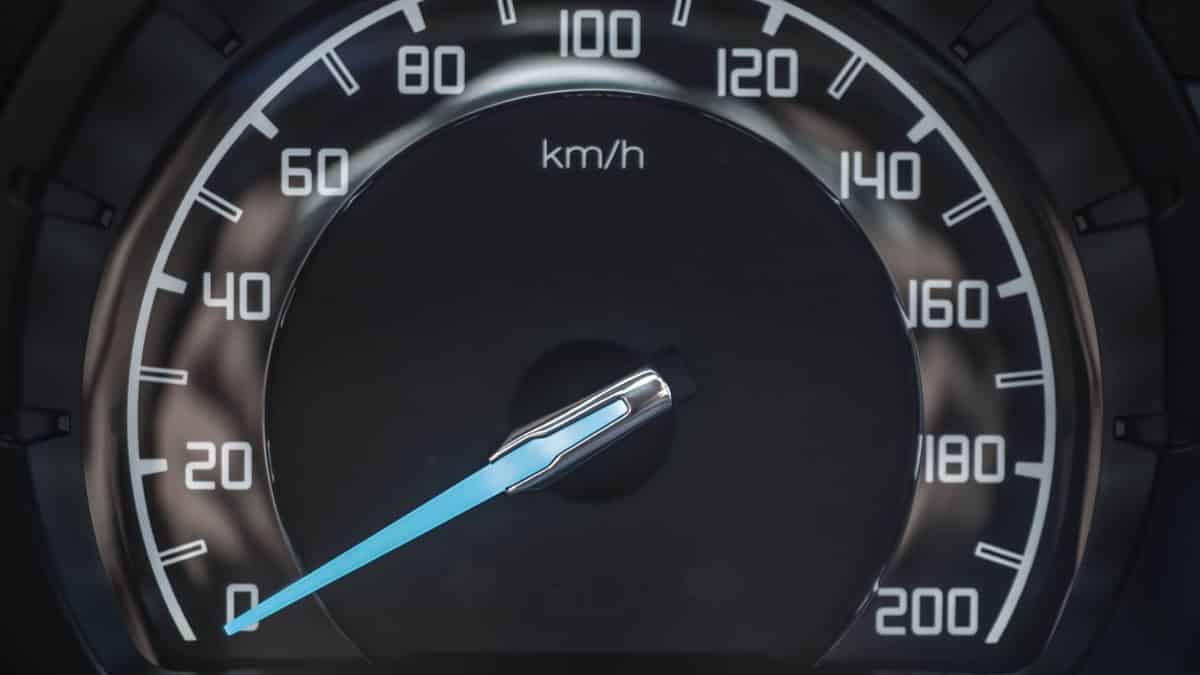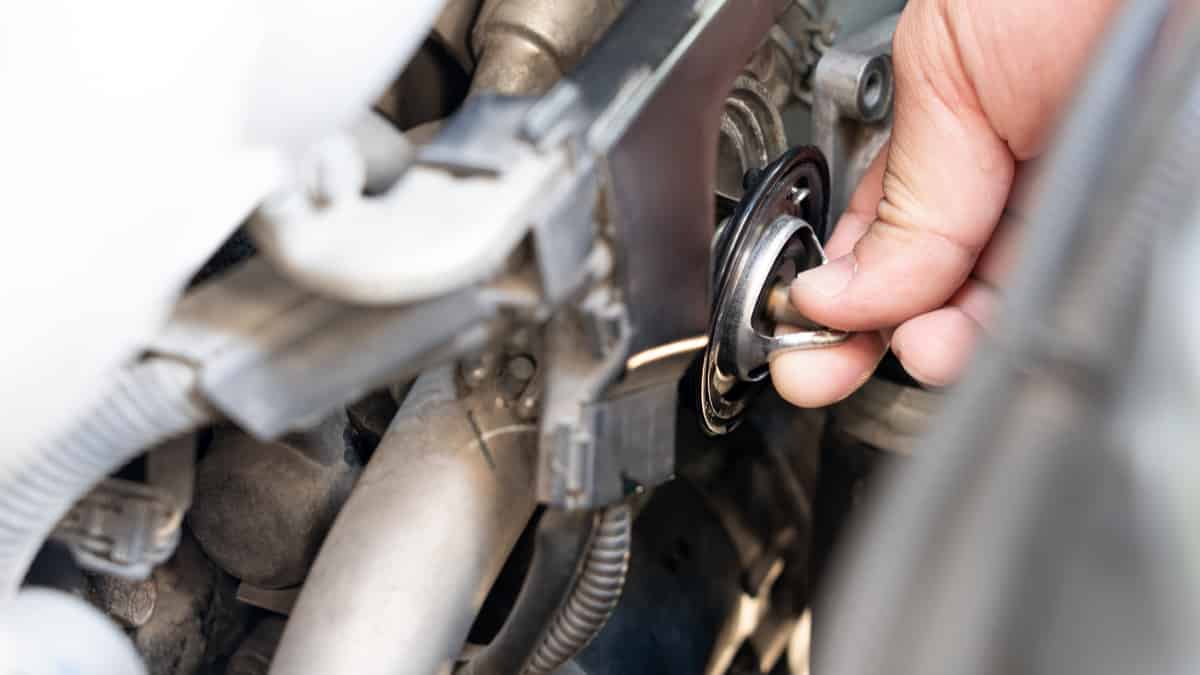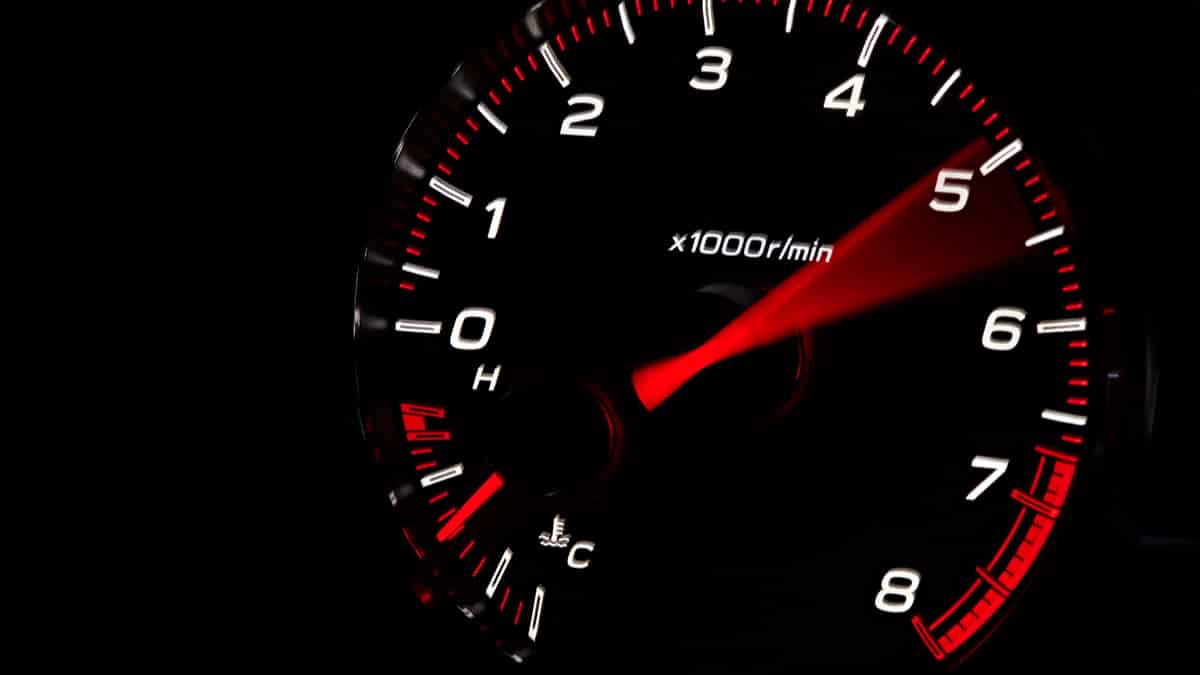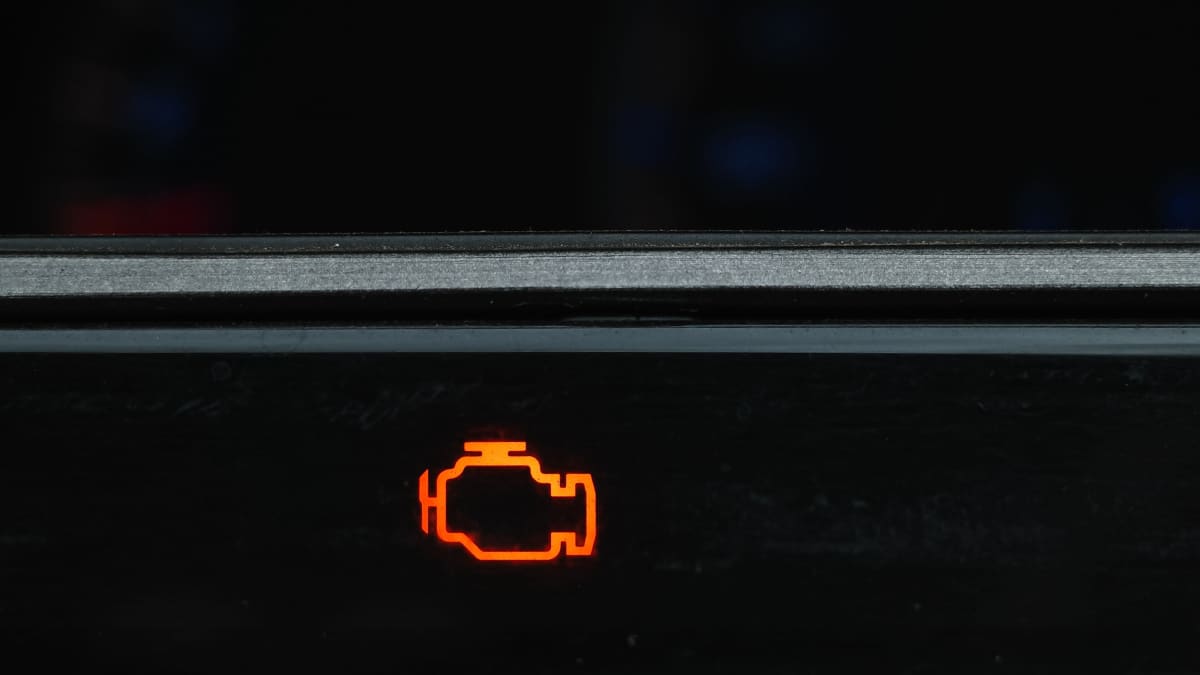If your car shakes while driving, it can be an unsettling experience. But don’t worry – it’s not always a sign of something serious. In fact, there are many possible causes of car shaking.
Few things are more annoying than a car that shakes when driving at higher speeds, especially when going for a long road trip. But what could be causing these shakes, and do you need to fix the problem immediately? Let’s find out!
In this article, I’ll take a look at the most common reasons and how to fix them. So whether you’re dealing with a shaking car while driving at high or low speeds, I’ve got you covered!
What Causes Car Shaking When Driving?
The most common reason why a car shakes when driving is due to damaged or unbalanced wheels. It can also be caused by damaged brake rotors, driveshaft issues, bad wheel bearings, or other suspension problems.
As you see, there could be a lot of different potential problems causing this issue, but that is not all of them. Here is a more detailed list of the most common causes of why your car is shaking while driving.
1. Damaged Tires or Rims
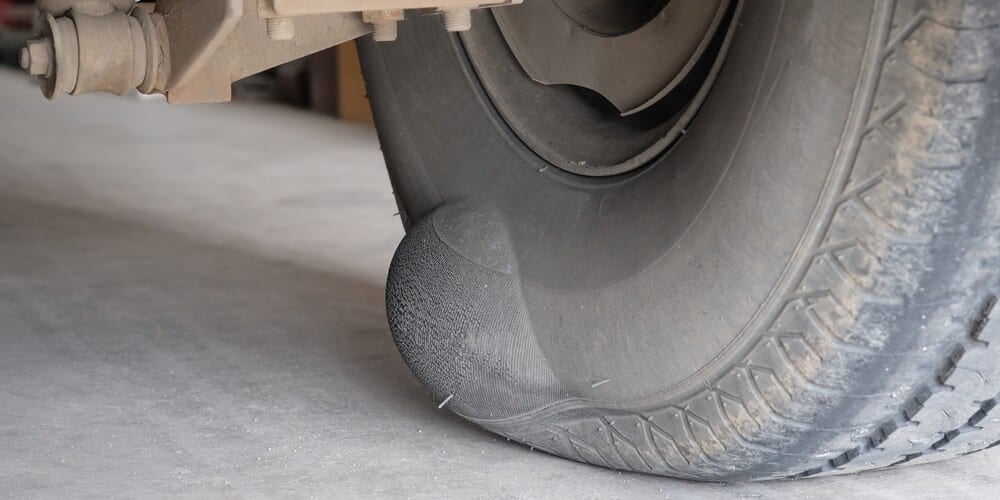
The most common cause of your shaking car is damaged tires or rims. These problems can arise simply because the tires are old, or from a minor accident.
Tires need to be replaced occasionally because they are made of rubber that will degrade with age and begin to crack. When the tires age and the rubber goes bad, it can cause bubbles and uneven surfaces on the tires, causing your car to shake while driving.
Another common problem is that you have hit a curb or something similar and damaged the tire or the rim. If you haven’t changed your tires in a while or you know you had a minor accident with a curb, it’s definitely time to do a thorough visual inspection of your tires and wheels.
2. Improper Tire Balance
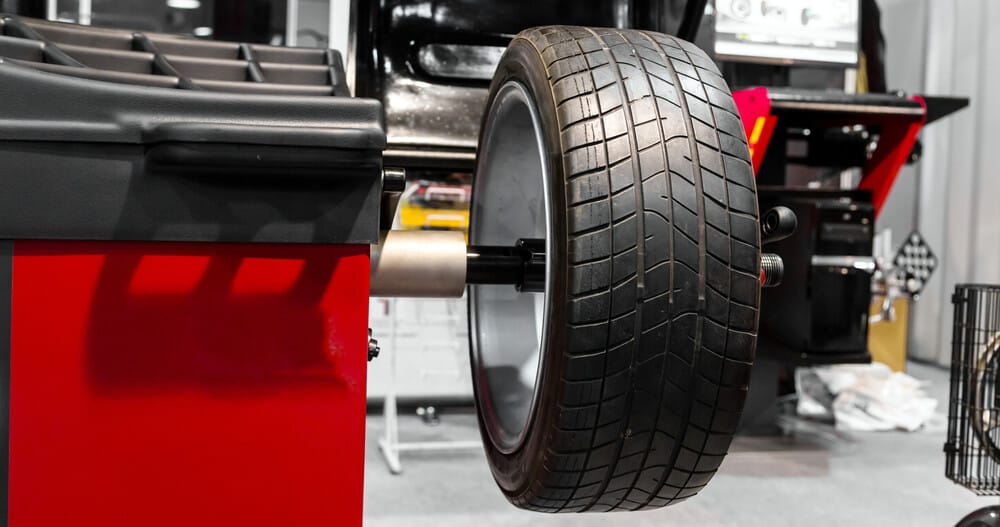
Another common cause is improper tire balance. Over time, your car tires lose balance, causing vibrations. It can either be due to the age of the tires or if the balance weights come loose, especially if you have glued weights, which is common on aluminum rims.
To fix this problem, take your car to a tire shop to rebalance the tires. This procedure involves adding small amounts of weight to each wheel, and it is done with the help of a tire balancing machine.
3. Faulty Brake Rotors
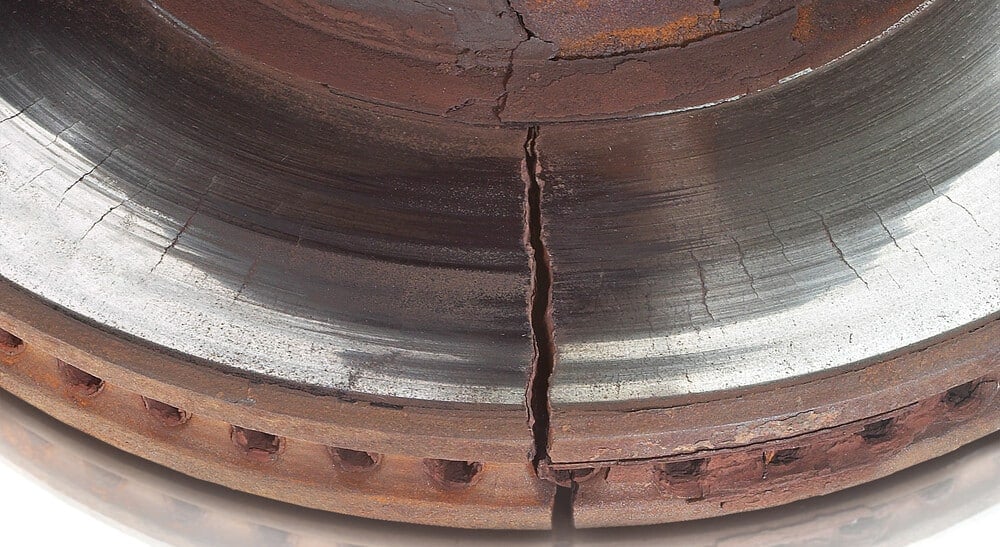
Faulty brake rotors are another thing that can cause vibrations and shakes while driving because the brake pads are always pushing slightly against the brake rotors.
If the car vibrates more when you press the brake pedal with light force, and if you feel the steering wheel vibrate, the problem is most likely in the car’s front brake rotors. If you feel extra vibration when braking, but not from the steering wheel, it could be the rear brake rotors that are worn or damaged.
The brake pads and rotors will wear out over time and need to be replaced several times during the life of the car. On average, car brake rotors should be replaced every 70,000–90,000 miles.
More information: 7 Symptoms of Bad Brake Rotors & Resurface Cost
4. Power Steering Problems
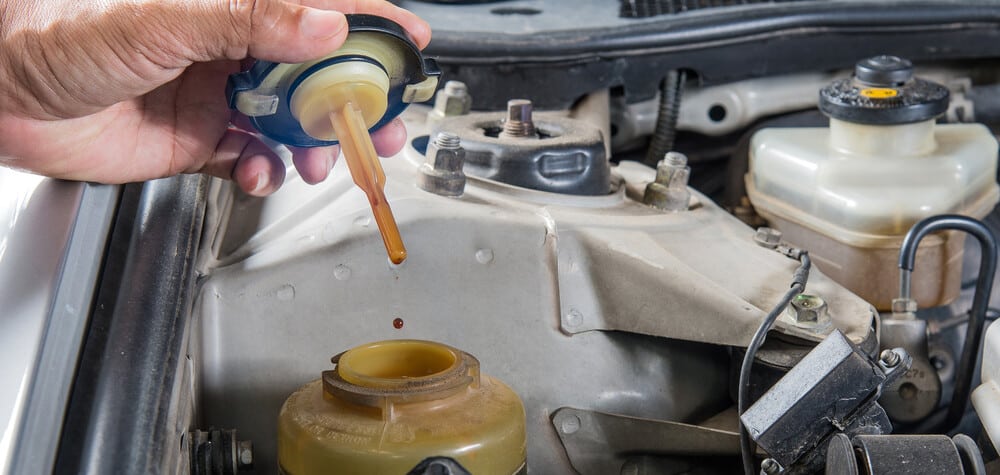
Check if the car vibrates or shakes only when you turn the steering wheel. If so, the problem may be with the power steering system. To correct the issue, check the power steering system for leaks and make sure the power steering fluid level is good. If the power steering fluid looks black and worn, it may be time to change it.
Listen if you can hear any strange noises from the power steering pump when the car engine is running. If so, you may have a faulty power steering pump.
5. CV Joint or Driveshaft Issues

CV joints and driveshafts transfer the power from the transmission to your wheels. These axles must be well balanced so as not to create vibrations or shakes while driving.
If any of your driveshafts are bent or damaged due to hard driving or just wear and tear, the car will start shaking. The shaking intensity will increase as you accelerate the car, but you can often feel them at a constant speed as well.
Just visually inspecting the axles is usually not sufficient because the differences are too small to see with your eyes. However, if they look rusty or have other damage, it may be a reason to suspect that they are out of balance.
Related: 5 Symptoms of a Bad Driveshaft (& Replacement Cost)
6. Damaged Steering Components
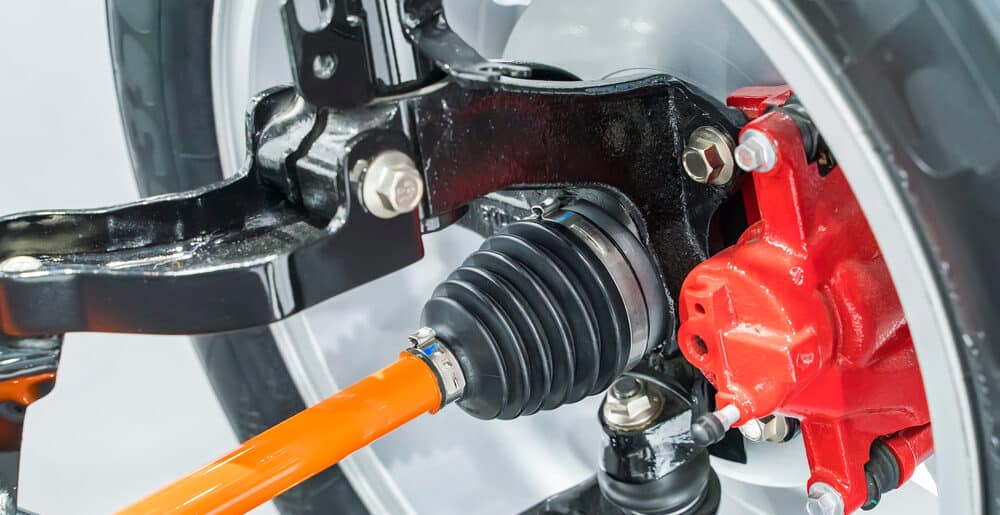
The steering components play an important role in the drivability of your car. They must be super stable with no play; otherwise you will notice major drivability issues with your car.
Over time, they will wear out, and this will create play in the bushings and ball joints. This will cause the wheel alignment to be poor, which can also create vibrations during your ride as the wheel angles fight against each other.
7. Worn Wheel Bearings

Worn wheel bearings and loose steering components are closely linked and have similar symptoms. The wheel bearings are mounted on the wheel hub and allow the wheels to rotate freely.
If the wheel bearings wear out, the wheel can move freely from side to side at any speed, causing disturbing vibrations. You will also often hear a loud noise when driving at higher speeds when your car is suffering from a bad wheel bearing.
RELATED: Wheel Bearing Noise – Causes & What Does It Sound Like?
8. Engine Issues
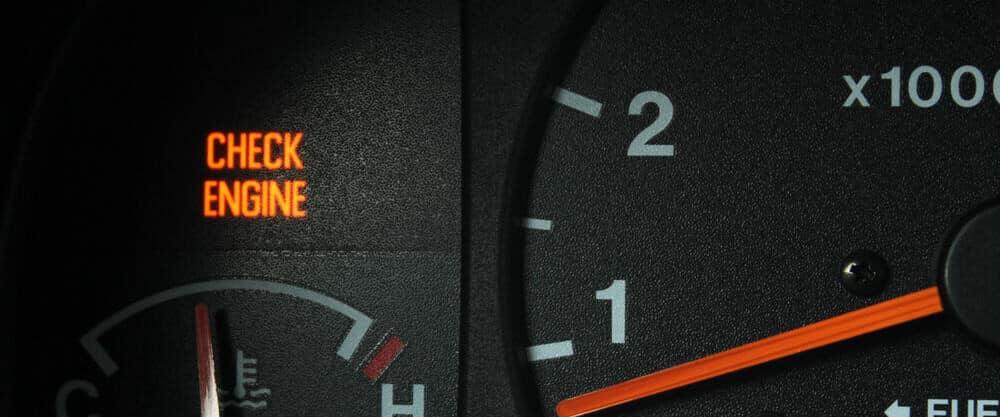
Sometimes the problem isn’t the brakes or the wheels; the engine causes it. If your car starts to shake when driving at a constant speed or shakes occur during acceleration, chances are the problem is with the engine and not the suspension.
This can happen due to an improper air-fuel mixture in the engine. It can also happen due to misfires caused by worn ignition parts. However, if you have engine trouble, the engine light will also appear on your dashboard.
Therefore, if your car shakes while driving, and at the same time you have a check engine light on the dashboard, it is definitely time to read the error codes from the engine control unit.
How To Fix A Car That’s Shaking While Driving?
To fix a car that is shaking while driving, you first want to inspect the wheels and tires for any damage. Then you want to balance the tires to see if they are round and balanced. You must also inspect the brake rotors and suspension parts for any damage.
Here is a more detailed list of how to fix a car that’s shaking while driving.
1. Inspect and balance the tires
The most common cause of a car shaking while driving is damage to the wheels or unbalanced wheels, and therefore it is also the first thing you want to check.
Check the rims and tires for noticeable damage that can be seen with your eyes, such as tire bubbles or damage to the rims. Then you need to balance the tires and the only thing you can do is with a wheel balancer machine.
Because most people don’t have a tire balancer machine at home, you most likely need to take it to a tire shop for this procedure. Balancing the wheels is often not that costly and will solve a shaking car in many cases; however, you may want to inspect the other things first also.
Learn more: 5 Symptoms of Unbalanced Tires & Tire Balancing Cost
2. Inspect the brake rotors
The next thing you want to inspect is the brake rotors. Seeing warped brake rotors with the naked eye is in most cases impossible, but you can still inspect them to see if they are very rusty which would be a strong sign that you need to replace them.
To find out if warped brake rotors are causing the shaking while driving, you need to pay attention to when the shaking occurs. If the car shakes more when you press the brake pedal, that’s a strong sign that the brake rotors are causing it.
If your steering wheel shakes when you press the brake pedal, it is likely because of bad front brake rotors that need to be inspected and replaced. If the whole car shakes a lot more when you press the brake pedal, it is very likely caused by the rear brake rotors.
However, if the car doesn’t shake more when you press the brake pedal than when driving normally at higher speeds, it is not very likely that it is due to bad rotors.
RELATED: Car Shaking When Braking – Common Causes & What to Do
3. Inspect the suspension
After you have inspected the brake rotors and wheels, you need to inspect the suspension for any damage. You must inspect all bushings, tie rods, and other parts that make up the suspension system.
You need to inspect both the front and rear suspension, as both can cause a shaking car while driving. Lift the wheels up from the ground and try to pull the wheels in all directions to see if you can feel any play due to worn bushings or other suspension parts.
You’ll also want to make sure the power steering fluid is full and look for any leaks around the driveshaft boots, which could be a sign of a bad CV joint.
4. Talk to a professional
If you have inspected and tried all of the above, then there is a risk that your drive shafts are out of balance or there is an engine problem. When it comes to unbalanced driveshafts, it can be very difficult to determine which driveshaft is causing it, and therefore it may be wise to get help from someone who has dealt with these problems before.
We must remember that a shaking car can be really difficult to diagnose. It may be better to get help from a professional mechanic who has solved these issues many times before.
Is it OK to drive a car while shaking?
No. It’s not recommended to drive a car while shaking until you diagnose and figure out what’s causing the issue. It could just be an unbalanced tire, which is often not that serious to drive with, but it can wear out suspension parts in the long run. You also want to be sure what is causing the problem before you continue driving the car.
Should I be worried if my car is shaking?
If your car shakes while driving, it can both be a sign of something serious and something less serious. Therefore, you need to have someone diagnose what is causing the shaking car before continuing to drive the car to prevent further problems or even accidents.
Why does my car feel like it’s wobbling?
If your car wobbles, it is usually due to bad suspension bushings or a bad wheel alignment. However, bad suspension bushings or other worn suspension parts will also cause bad wheel alignment, so you definitely want to check that out before getting an alignment.
Can bad spark plugs cause a car to shake?
Yes. Bad spark plugs can cause a car to shake when accelerating or even when driving normally. However, if your car still shakes when you let off the throttle or put the car in neutral at higher speeds, it is more likely that unbalanced wheels or a bad wheel alignment are causing the problem.
Due to the fact that a shaking car is most likely caused by something out of balance, such as the wheels, brake rotors, or a drive shaft, it can be quite difficult to find the problem without the right tools.
Therefore, when it comes to issues like a shaking car, it is often worth taking your car to a mechanic instead of replacing all the parts in your car without doing a proper diagnosis. Shaking cars can even be difficult for professional mechanics to diagnose!
I hope you enjoyed this article and now have all the knowledge you need about shaking cars and now can decide if you want to diagnose it yourself or take it to a mechanic for a look!
Learn more:
- Why Is My Steering Wheel Shaking While Driving? (Low & High Speeds)
- Car Shakes When Stopped or Idling? (Here’s How to Fix it)
- Car Shakes At Idle But Smooths Out While Driving – Causes & Fixes
Categories: Driving, Troubleshooting

